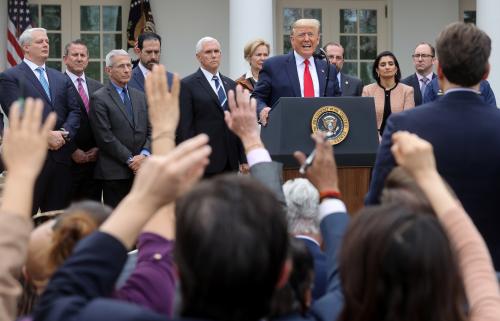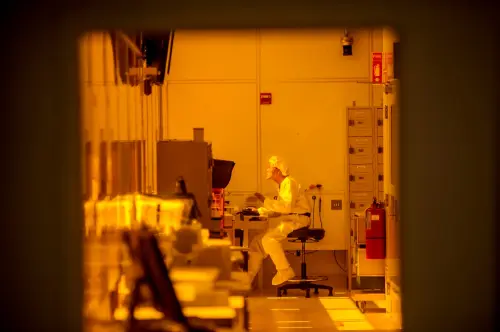Are we still the country whose engineers jerry-rigged a seemingly impossible rescue for the crippled Apollo 13 mission? We had better hope so, because the looming shortage of ventilators to help severely ill Covid-19 patients breathe until they recover poses a life-and-death challenge on a massive scale.
Italy offers a sobering window onto our future if we fail to solve this problem. Throughout the country’s northern region, patients in acute respiratory distress have overwhelmed local hospitals. Demand for ventilators far outstrips supply, forcing doctors to choose which sufferers will be placed on ventilators and which will not. Many who go without this treatment will die. No physician wants to be in this position, and neither does any family.
The problem in the U.S. is straightforward. The most credible models of what we can expect all project that peak demand for ventilators will exceed available supply. Our current capacity to produce this vital equipment domestically cannot close the gap, global supply chains are shutting down, and many foreign sources of parts and finished machines have been ordered to retain their products for domestic use.
A few days ago, President Trump finally invoked the Defense Production Act, which gives him the authority to order our companies to divert their production lines to output vital to the nation’s security. [3/27/20 note: Though he invoked the Defense Production Act earlier in March, Trump did not force manufacturers to start making medical equipment until Friday, March 27.] But it will be very difficult for auto plants and other potential suppliers to retool quickly enough to avert disaster. Ventilators are complex instruments with many essential parts, and they must be highly reliable. If they fail, patients will die.
We may have only one chance to get this right, and the window to save lives will close fast.
In this respect, the UK is ahead of us, and its example is worth emulating. On Monday, Prime Minister Boris Johnson hosted a conference call with many of the country’s largest manufacturers, asking them to move to ventilator production as quickly as possible, and his government set up a hotline for businesses willing to help.
Since then, four hundred firms have responded, many with innovative ideas for speeding the process. For example, the auto maker Vauxhall has offered to make ventilator parts with 3-D printers. Aerospace firms, which have vast experience creating oxygen systems for aircraft, have offered to pool their engineering resources and pitch in. This consortium has set a goal of producing a workable ventilator within just a week.
This is the kind of aggressive approach we need in the United States, but it won’t happen unless President Trump does what Boris Johnson is doing. He should put out an APB bringing mass production firms together with our best engineers. This emergency team should be looking for the simplest devices that can do the job, even if they are not state-of-the-art, and they should approach their task with the same sense of urgency as the engineers in Houston as they raced the clocked to save the Apollo 13 astronauts.
Doing the job this way means cutting corners and taking chances. The federal government should get out of the way by waiving time-consuming regulations and immunizing participating firms and individuals from liability and lawsuits if anything goes wrong, which it probably will. If there is ever a time when the best is the enemy of the good-enough, that time is now.
As he invoked the Defense Production Act on Wednesday, President Trump said that he was taking this step “just in case we need it.” Mr. President, please forget about “just in case.” We need it—now—so that the companies whose participation will save lives know exactly what this country expects of them. And publicly announce, with all the gravity your White House can muster, that now is the time for all Americans with the necessary know-how to come to the aid of their country. You’ll find that they are eager to do so; they just need to be asked.
After Pearl Harbor, our civilian economy quickly pivoted to become the great arsenal of democracy. We now face the moral equivalent of war, this time against an invisible but deadly foe, and we must do it again. How we meet this urgent challenge will determine whether historians will write of this moment that it was our finest hour—or further evidence of our national decline.
The Brookings Institution is committed to quality, independence, and impact.
We are supported by a diverse array of funders. In line with our values and policies, each Brookings publication represents the sole views of its author(s).










Commentary
To save America, it’s time to activate the great arsenal of democracy
March 20, 2020